Minister Lindiwe Zulu: A Political Journey Defined by Achievements, Challenges, and Public Perception
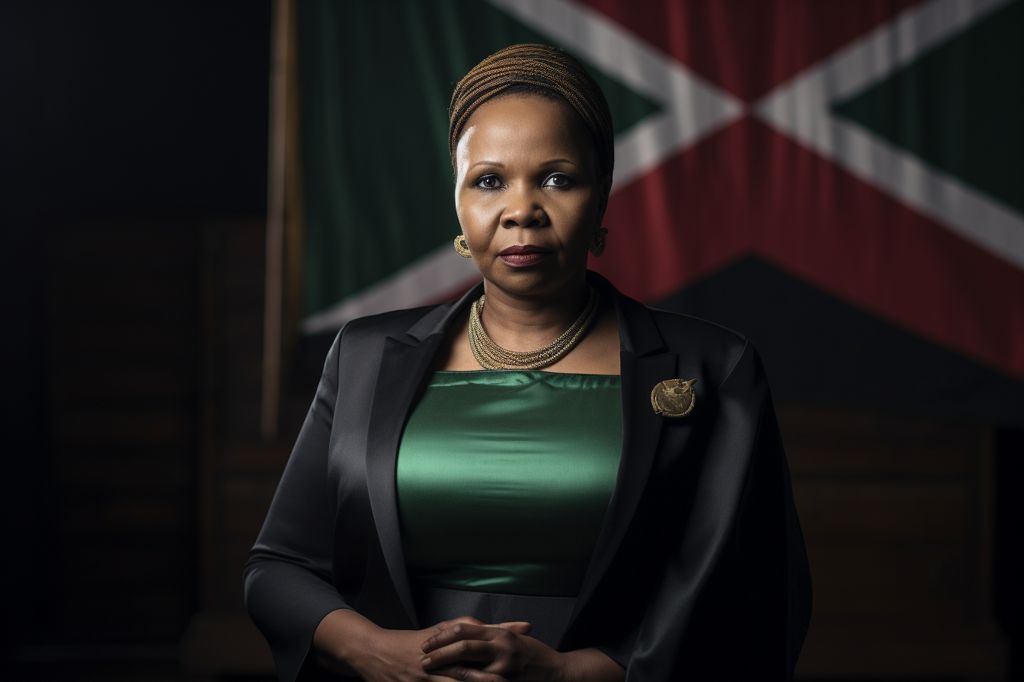
Introduction to Minister Lindiwe Zulu
Minister Lindiwe Zulu, a prominent figure in South African political landscape, currently holds the role of Minister of Social Development. She is also a steadfast member of the National Executive Committee and the chairperson for the African National Congress’s Subcommittee on International Relations.
Born and educated in Swaziland, Zulu’s political journey began in the wake of the 1976 student uprising, leading her to join the African National Congress (ANC). Her time in exile took her to Morogoro, Tanzania, and later Russia, where she studied journalism and gained a Master’s degree. Her academic journey further intertwined with her political one when she joined the liberation army Umkhonto we Sizwe, marking the start of her dynamic career.
Throughout her journey, Zulu held numerous significant roles, including Head of Communication for the ANC’s department of Religious Affairs and the ANC Women’s League. Her commitment to governance saw her elected as a member of the Gauteng Legislature, and later as the Deputy Speaker. Zulu also gained international exposure as the South African Ambassador to Brazil, and in the private sector, as the Executive Head of Government and International Relations at Vodacom group.
Her considerable experience and dedication have led her to her current position as the Minister of Social Development, where she is driven by her interest in promoting and protecting the rights of vulnerable groups. This introduction sets the stage for delving deeper into Zulu’s life, career, and the allegations of nepotism that have emerged in recent years. Stay tuned for a comprehensive look at this influential figure in South African politics.

Early Life and EducationBorn and raised in South Africa, Minister Lindiwe Zulu’s journey to becoming a key figure in the nation’s political landscape is both intriguing and inspiring. The seeds of her political inclinations were planted early, particularly after the 1976 student uprising, which led her to join the African National Congress (ANC), a decision that would significantly shape her life trajectory.
Her thirst for knowledge took her to Swaziland, where she pursued her early education. An opportunity then presented itself in the form of a scholarship to study journalism in Russia. She seized this opportunity, demonstrating her resilience and determination, and successfully acquired a Master’s degree in Journalism. This educational phase in her life was not just about gaining an academic qualification but also about laying the foundation for her future involvement in communication roles.
Upon her return from Russia, Ms Zulu joined the liberation army, Umkhonto we Sizwe, a clear manifestation of her commitment to the political cause she had espoused from her youth. Her military training was soon followed by another significant role in her life: she joined the Pan African Women’s Organisation (PAWO) in Angola, where she served as the coordinator of the communications committee.
In the late 1980s, Ms Zulu was appointed Head of Communication in the ANC’s Department of Religious Affairs. This role marked the beginning of her series of prominent communication roles. She also served as the Head of Communication in the ANC’s Uganda office before she eventually returned to South Africa in 1991, taking up the role of Head of Communication in the ANC Women’s League.
Ms Zulu’s early life, education, and initial involvement in politics underline an individual who is not only relentless in the pursuit of her goals but also deeply committed to the cause of social justice and national development. Her journey from a student in Swaziland to an influential figure in the South African political scene is a testament to her capabilities and dedication.
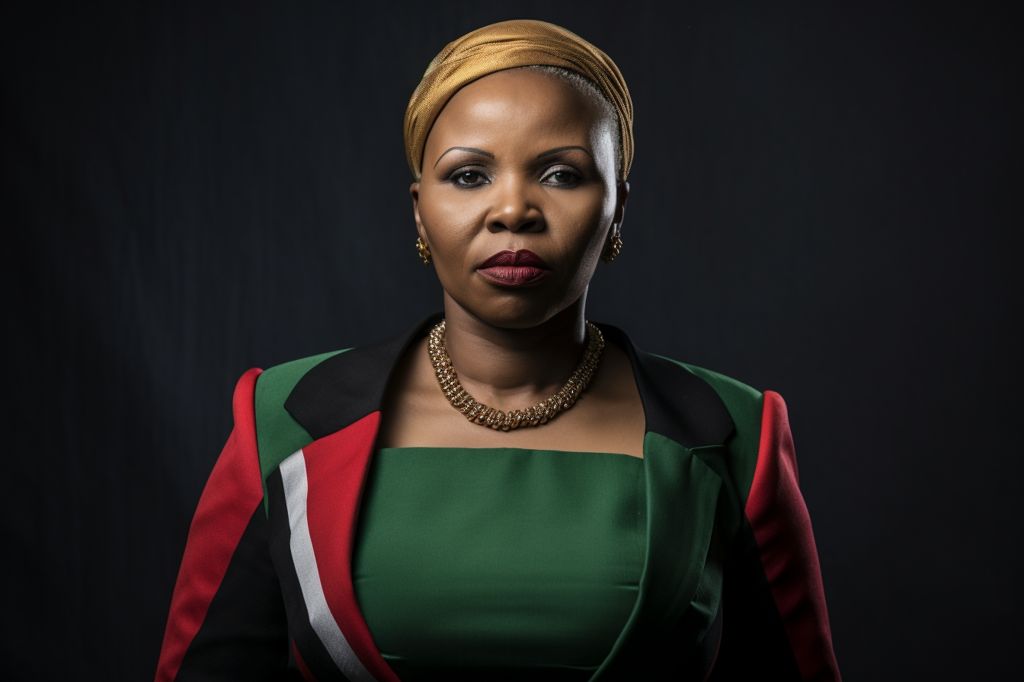
Political Career of Minister Lindiwe Zulu
The political journey of Minister Lindiwe Zulu reveals a story of dedication, resilience, and unwavering commitment to serving the public. Tracing her political lineage, it’s evident that she has always been a woman of action, serving in various capacities throughout her political career, marking her as a key figure in South Africa’s political landscape.
Minister Lindiwe Zulu’s initiation into the political sphere was as the head of communication for the Pan African Women’s Organisation in Angola in 1988. This role was her first foray into the realm of communication, a field she would continue to excel in as she progressed in her career. Moving continents, she held a similar position in Zambia for the ANC department of Religious Affairs in 1989. A year later, she took on the role of head of communication and administrator in the ANC office in Uganda.
On returning to South Africa in 1991, Ms Zulu continued to make her mark in the world of communication, becoming the head of communication in the ANC Women’s League. Her exceptional performance in the role landed her the position of spokesperson for the country’s first democratic elections under the ANC Department of Information and Publicity.
In 1994, a noteworthy year, Ms Zulu became a member of the Gauteng Legislature and was appointed Deputy Speaker of the Gauteng Legislature a year later. This role marked a significant step in her political career as it positioned her within the broader framework of South African politics. In 1999, she served as the special advisor to the Minister of Foreign Affairs, a role that further showcased her skills in the political sphere.
Adding to her extensive political repertoire, Ms Zulu was appointed the South African Ambassador to Brazil in 2004. This role marked a significant step as she represented South Africa in international affairs, further broadening her scope and influence. In 2007, Ms Zulu was elected to the ANC national executive committee, a testament to her leadership and the respect she commanded within the party.
Further cementing her position in South African politics, Ms Zulu was elected to Parliament as an MP to the National Assembly in 2009. From 2014 to 2019, she served as the Minister of Small Business Development, focusing on nurturing and developing small businesses within the country. Currently, she is the Minister of Social Development, a role that allows her to focus on the promotion and protection of the rights of vulnerable groups.
A look at Minister Lindiwe Zulu’s political career shows a journey marked by progression, dedication, and a clear commitment to public service. As she continues to serve the public in her current role, we look forward to seeing the impact her leadership will have on South Africa’s social developme
In the face of accusations of nepotism, Lindiwe Zulu’s political career still stands as a testament to her dedication to the South African people. Her career progression is marked by a series of roles that have consistently showcased her commitment to public service, despite any controversy.
In essence, the political career of Minister Lindiwe Zulu is a tapestry woven with threads of resilience, dedication, and unwavering commitment to public service. Her journey serves as an inspiration to many, especially women looking to make their mark in the political sphere. Regardless of any accusations or controversy, one thing remains clear – Minister Lindiwe Zulu has played, and continues to play, a significant role in shaping South Africa’s political landscape.
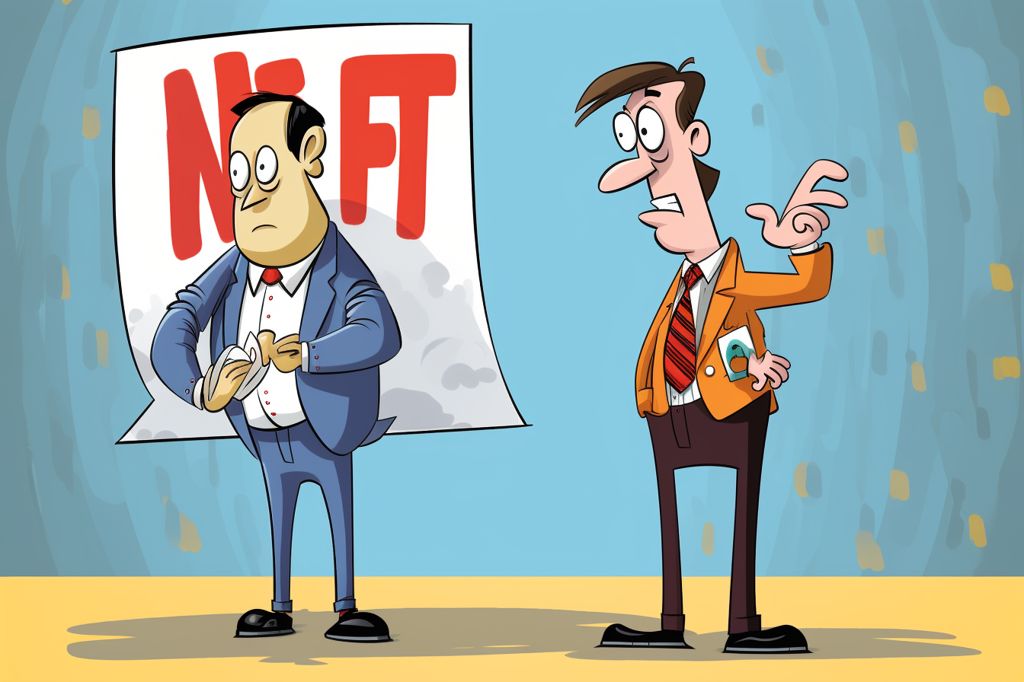
Accusations of Nepotism
Undeniably, in the realm of politics, the term ‘nepotism’ is a potent accusation. Minister Lindiwe Zulu found herself at the center of such a controversy, a move that left many questioning the integrity of the political processes.
This outcry was primarily triggered by Minister Zulu’s attempt to appoint a close ally, Mchunu, as the director-general. Notably, Mchunu is no stranger to working closely with Zulu, having served as her chief of staff during her tenure as Small Business Development Minister. This move was seen by some as a blatant display of favoritism, leading to accusations of nepotism against Zulu.
The appointment sparked a wave of objections, most notably from union groups. The union’s demands were resolute—they called for dismissal in light of the controversy. This reaction is symptomatic of the underlying tension that nepotism claims often bring to the surface. The unions, typically tasked with advocating for fairness and equal opportunity, viewed the appointment of Mchunu as a contravention of these principles.
The story gained traction in the media, with reports detailing the accusations and elevating the issue to a national scale. The accusations against Zulu became a hot topic, with many keenly interested in the unfolding events.
Zulu’s response to these allegations was eagerly awaited. How she handled the situation would set a precedent, making it an issue of public concern.
Navigating these accusations is a delicate process. The details of the allegations, the response, and the subsequent public impact, form part of a larger narrative that shapes public opinion and influences political decisions.
As South Africa continues to grapple with issues of nepotism and corruption, the case of Lindiwe Zulu presents a microcosm of the broader challenges. As such, it remains a subject of intense scrutiny and discussion.
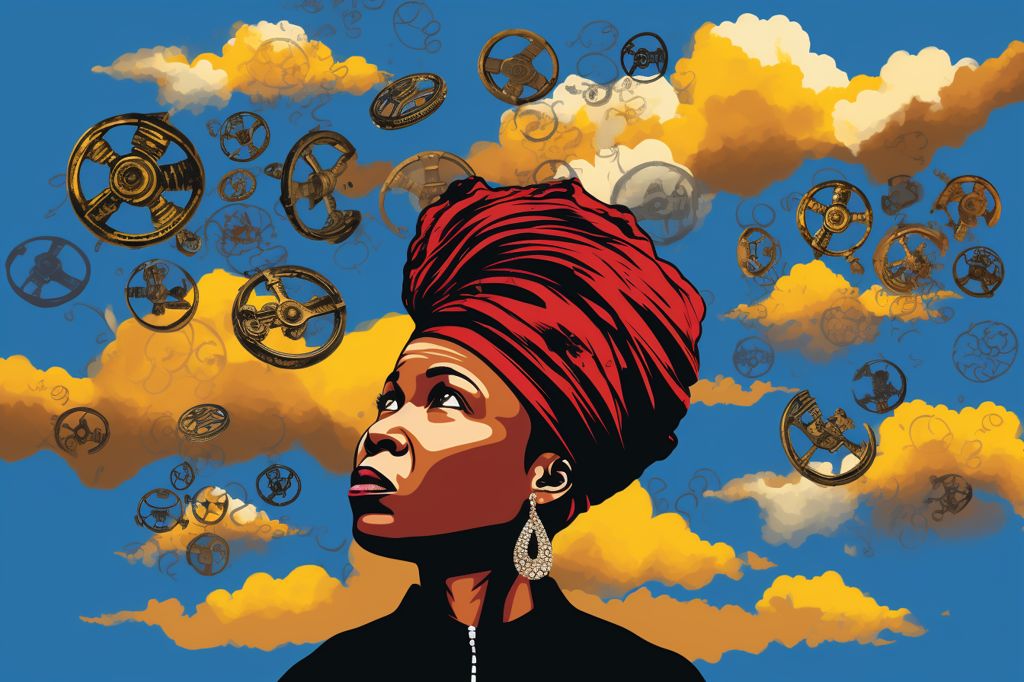
Public Response and Impact
The public response to Minister Lindiwe Zulu’s alleged act of nepotism significantly impacted her reputation and political career. Accusations of nepotism arose when she attempted to appoint a close ally, Mchunu, as the director-general, who had served as her chief of staff during her tenure as Small Business Development Minister.
This decision met with an outcry from various quarters, especially unions. They demanded not only a review of the appointment but also Zulu’s dismissal for the act. This claim of nepotism did not sit well with the public, with many questioning the integrity of her leadership.
Critics of Minister Zulu argue that such favoritism undermines meritocracy, discourages fair competition and tarnishes the public image of the political office. This controversy caused significant consternation among the general public, making her the subject of headlines in several media outlets and social platforms.
The impact on her career has been quite palpable. The accusations have cast a shadow over her competence as a minister, with the scandal potentially affecting her future prospects in the political arena. The controversy has not only added a blemish to her political reputation but also raised questions about her ability to make fair and just decisions.
Moreover, the allegations against Minister Zulu have impacted public trust, a fundamental pillar of political leadership. If public servants are seen favoring personal relationships over the best interests of the public, it inevitably erodes public confidence in their ability to govern effectively.
However, it’s crucial to note that these accusations are part of an ongoing investigation. The final impact on Zulu’s career and reputation would likely depend on whether these allegations are eventually proved or disproved.
In conclusion, the nepotism accusations against Minister Lindiwe Zulu have stirred significant public response and debate, casting a shadow over her political career. Her actions have underscored the importance of transparency and integrity in public office, reminding public servants of their obligations and responsibilities to the people they serve.
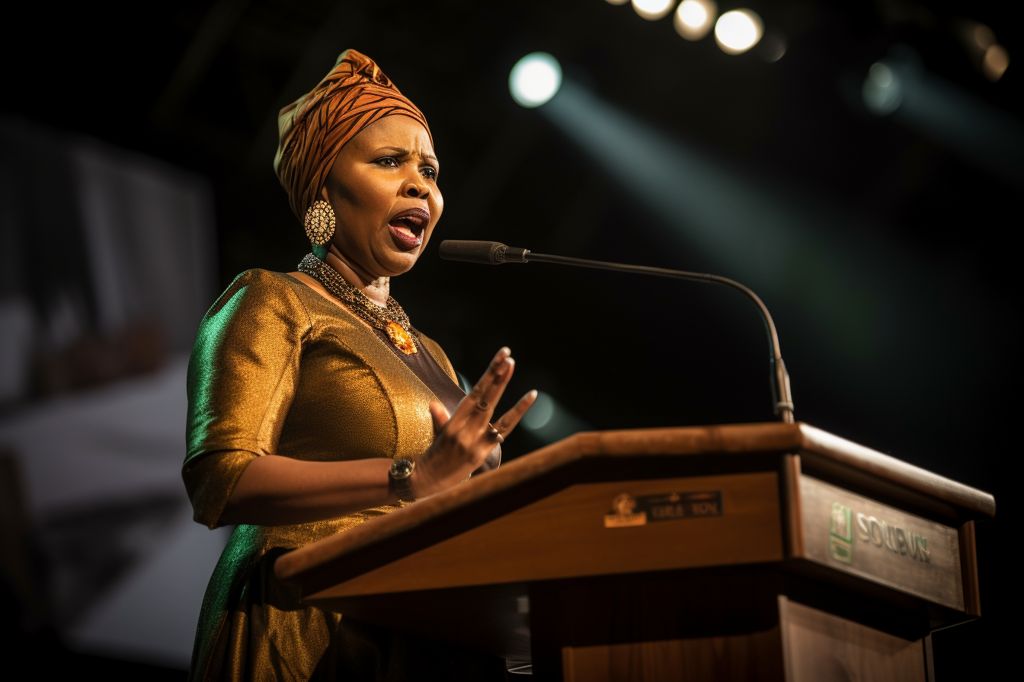
Current Role and Responsibilities
Ms. Lindiwe Zulu, a seasoned diplomat and prominent figure in South African politics, currently serves as the Minister of Social Development. Her illustrious career has seen her taking on diverse roles, from international relations advisor to the President to the Minister of Small Business Development from 2014 to 2019.
Today, as the Minister of Social Development, Ms. Zulu’s portfolio directly addresses some of the most pressing social issues in South Africa. She spearheads initiatives aimed at uplifting vulnerable sectors of the community, specifically women, children, the youth, and people with disabilities.
Her responsibilities are vast and significant. They involve devising strategies and implementing policies that promote social welfare, ensuring that people have equal access to opportunities and resources. Moreover, she collaborates with other governmental departments, NGOs, and international entities to formulate policies that contribute to poverty alleviation and social inclusion.
Notably, Ms. Zulu has led several recent initiatives that underline her commitment to social development. She continues to champion the rights of vulnerable groups, setting the tone for an inclusive and compassionate leadership style. This dedication resonates with her long-standing interest in issues relating to the promotion and protection of the rights of marginalized groups.
An important part of Ms. Zulu’s role is to regularly monitor and assess the efficacy of the social development policies in place. She ensures their alignment with the strategic objectives of the government and the diverse needs of the South African population. This adherence to performance indicators and outcomes is detailed in Ms. Zulu’s Ministerial Performance Agreement.
Despite the accusations of nepotism, Lindiwe Zulu has remained focused on her duties, working tirelessly to foster social development and uplift communities. Her dedication to public service is evident in her current role, where she continues to use her extensive political and communication experience to address social issues in South Africa.
In conclusion, Minister Lindiwe Zulu’s current role and responsibilities are rooted in her desire to create a more equitable society. Her recent initiatives, coupled with her unwavering commitment to public service, further emphasize her dedication to the social development sector in South Africa.
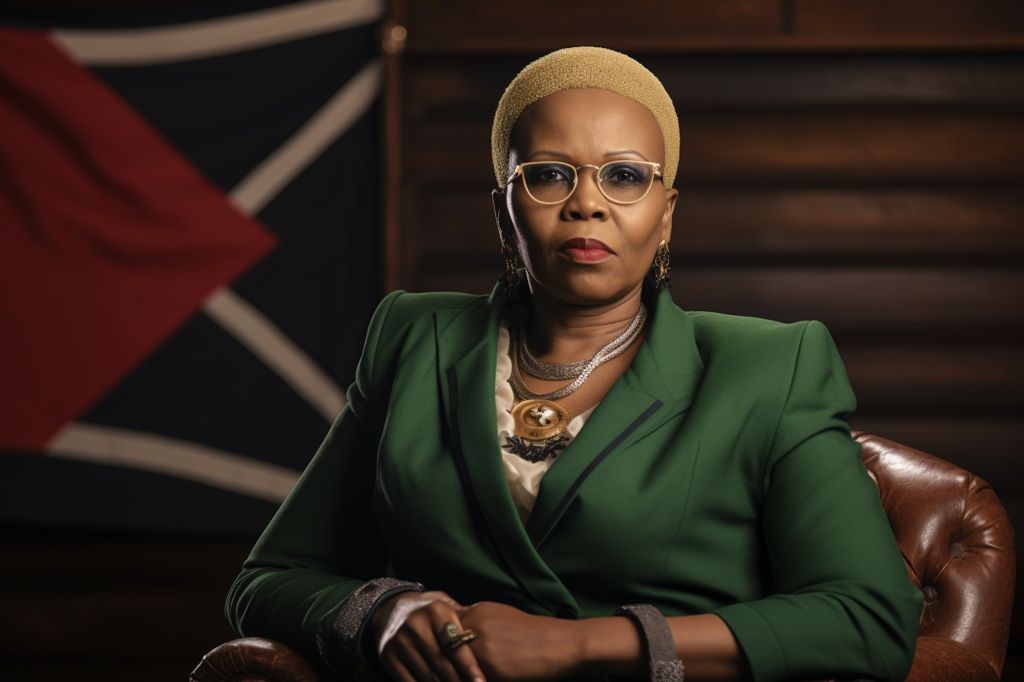
Future Prospects of Lindiwe Zulu
As we glance ahead, Minister Lindiwe Zulu, the current Minister of Social Development, promises a fascinating future. Her rich and diverse career, which has seen her serve in various capacities, positions her uniquely for the challenges and opportunities that lie ahead.
Looking into the future, Ms Zulu’s political trajectory suggests an individual ready for any challenge that comes her way. From her role as the international relations special advisor to the President to serving as Minister of Small Business Development (2014 – 2019), she has shown her ability to adapt and excel in different roles.
Her extensive experience in communication roles indicates the potential for a continued impactful presence in the political landscape. Having served as the head of communication for the ANC Women’s League and as the spokesperson for South Africa’s first democratic elections, she has demonstrated an ability to engage with diverse audiences and present complex ideas in an accessible way.
However, the path ahead may not be devoid of hurdles. The accusations of nepotism directed at Ms Zulu could potentially impact her political progression. It’s an affliction that many politicians have had to contend with – the challenge of maintaining public trust amidst controversy.
Yet, her commitment to the rights of vulnerable groups, as reflected in her interest in issues relating to the promotion and protection of the rights of women, children, youth, and people with disabilities, grants her an undeniable appeal. Her role as Minister of Social Development, in particular, offers numerous opportunities to make a significant difference in these areas.
Despite potential challenges, Ms Zulu’s resilience and adaptability give her a strong foundation for future prospects. Her extensive experience coupled with her passion for social development and inclusivity point to a future filled with opportunities for growth and impactful contributions.
In conclusion, Minister Lindiwe Zulu’s future is dynamic and full of possibilities. Her past roles have equipped her with an array of skills and knowledge that she can leverage for the benefit of her country. Time will only tell how she navigates the complexities of politics and public life, but there is no doubt that her journey will be closely watched.
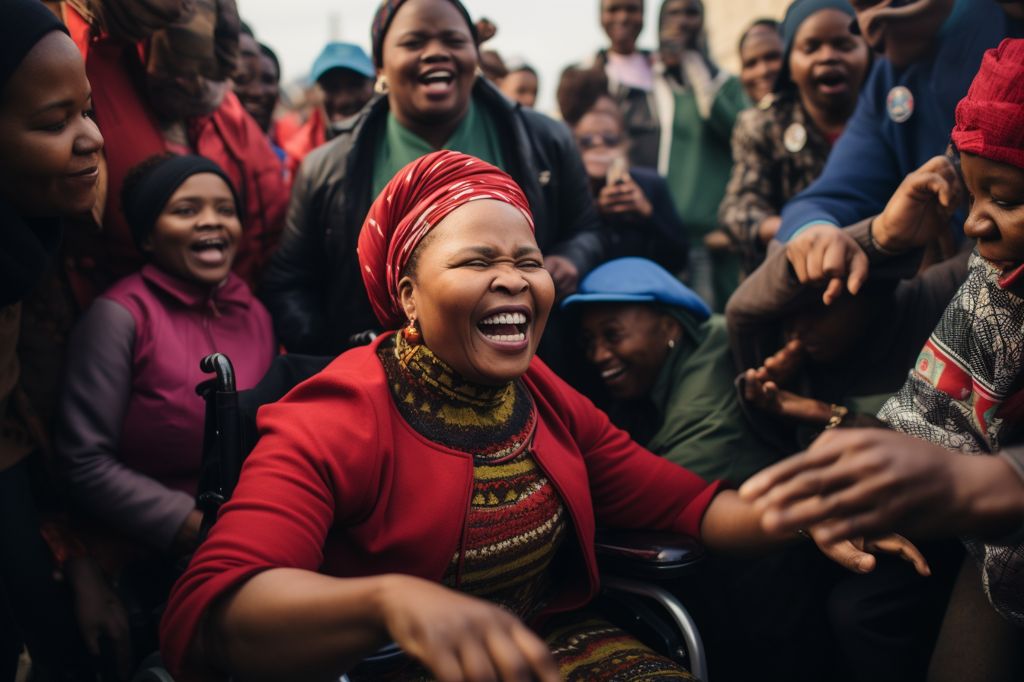
Conclusion
In conclusion, Minister Lindiwe Zulu’s journey is quite remarkable, one that has seen her wear many hats. From her early days as the head of communication in various ANC departments to her current position as South Africa’s Minister of Social Development, her career stands as a testament to her resilience, dedication, and commitment to public service.
Having served in different positions such as the international relations special advisor to the President and South African Ambassador to Brazil, Ms. Zulu displayed an impressive adaptability. Those experiences, coupled with her tenure as the Minister of Small Business Development (2014 – 2019), have undoubtedly enriched her outlook and enabled her to contribute effectively in her current role.
However, the allegations of nepotism associated with Ms. Zulu have undeniably marred her illustrious political career, leading to public scrutiny and criticism. This serves as a critical reminder of the constant examination public figures face, and the need for transparency and integrity in public office.
Ms. Zulu’s dedication to advocating for the rights of vulnerable groups, including women, children, youth, and people with disabilities, is indeed commendable. It’s evident that despite the challenges she’s faced, she continues to be a powerful force within the South African political landscape.
As we reflect on Ms. Zulu’s career, her impact is undeniable. Her roles, both past and present, have seen her shape policy, lead important conversations, and strive for social development. Given her track record and determination, one can expect her to continue to make significant contributions to South African society in the future.
In the end, the story of Minister Lindiwe Zulu, underscored by both triumphs and trials, is a noteworthy tapestry of service, dedication, and resilience. Despite the controversy, her legacy in South African politics remains significant and continues to inspire many.











